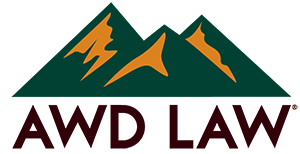Summary
In addition to the new Paycheck Protection Program, the CARES Act expands the existing Economic Injury Disaster Loans (EIDLs) program maintained by the SBA, and offers up to a $10,000 cash advance on EIDLs that does not have to be re-paid. The emergency cash advance may be used for meeting emergency needs, such as making payroll, rent or mortgage payments, providing paid sick leave and other costs to maintain business operations.
Eligibility
The emergency grants are meant to serve small businesses (i.e. businesses with no more than 500 employees), cooperatives with no more than 500 employees, Employee Stock Ownership Plans (“ESOP”) with no more than 500 employees, tribal small businesses, private non-profit organizations, sole proprietors and independent contractors. Between January 31, 2020, through December 31, 2020, these entities are eligible to apply for an SBA Economic Injury Disaster Loan. Unlike traditional SBA loan applications, applicants for SBA disaster loans in response to COVID-19 do not have to make personal guarantees for loans in an amount no greater than $200,000. Additionally, there is no requirement that the applicant was in business for one year prior to the application, but the applicant must have been operating since at least January 31, 2020. In certain circumstances, applicants may qualify for an SBA Economic Injury Disaster Loan based solely on their credit score, without the need to submit a tax return or tax return transcript before being approved. Finally, applicants do not need to show they were unable to obtain credit elsewhere.
Grant Amount and Timeline
The grant is essentially an advance of $10,000 or less, that an applicant for an SBA Economic Injury Disaster Loan may secure in as little as 3 days after submitting an application, and before learning whether the application is approved or denied. To simplify the process for such an accelerated timeline, The CARES Act only requires that an applicant provides a written certification made under penalty of perjury that the applicant is eligible for such a loan.
Grant Uses
The advance may be used for a variety of costs caused by COVID-19, including: (a) to provide paid sick leave to employees unable to work due to COVID-19; (b) maintain payroll to retain employees during business disruptions or slowdowns; (c) increased costs to obtain materials from alternative sources due to interrupted supply chains; (d) rent or mortgage payments; (e) repaying outstanding debts that cannot be paid due to revenue losses.
Repayment
The advance received by an applicant pursuant to The CARES Act does not have to be repaid even if the applicant who applies for an SBA Economic Injury Disaster Loan is subsequently denied. There is only one caveat. If an applicant who receives a grant after applying for an SBA disaster loan transfers into, or is approved for, a loan under the Paycheck Protection Program, the advance amount shall be reduced from the loan forgiveness amount for a loan for payroll costs made under the Paycheck Protection Program. Otherwise, the applicant would be “forgiven” for the same loan amount twice.
For more information on how to apply for an SBA Economic Injury Disaster Loan and obtain an advance, you should visit the U.S. Small Business Administration – Office of Disaster Assistance
https://www.sba.gov/disaster/apply-for-disaster-loan/index.html
Can AWD LAW help me?
AWD LAW is here to answer your questions. This summary is intended to serve as general information for interested persons, but it is not legal advice for any specific situation. AWD LAW attorney Monica Pertea ([email protected]) is available to answer fact-specific questions for our clients. Our number is (928) 774-1478.
